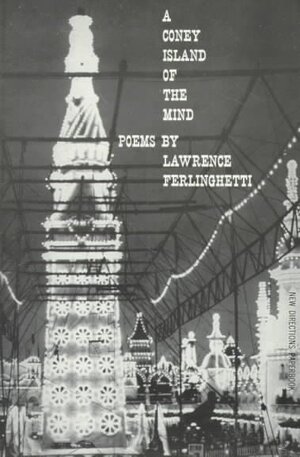We had a glorious short burst of rain Tuesday night, March 9, which left the city sparkling with puffy white clouds, clean air and baby-blue skies. It was a gorgeous, brisk winter day, the kind of weather that most likely drew thousands and thousands of emigrants to Southern California decades ago (along, of course, with the possibility of jobs and decent housing). Unfortunately, Travis Bickle’s wish did not come true: “Someday a real rain will come and wash all [the] scum off the streets.”
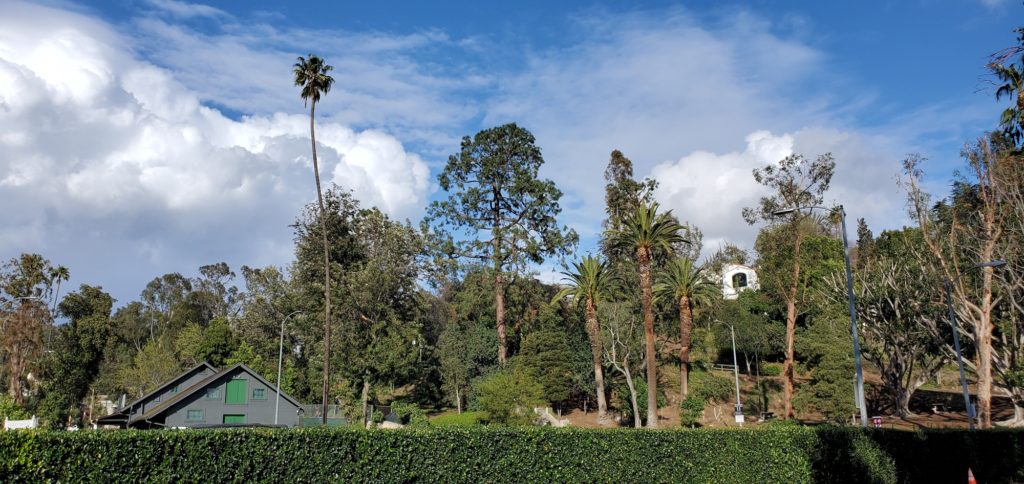
The next day was the 10th anniversary of the aborted “Arab Spring” in Syria, which was brutally put down by the regime of President Bashar al-Assad. Despite calls for US intervention in what turned out to be one of the worst humanitarian catastrophes of the 21st century, President Obama didn’t want to commit this country to another Middle Eastern war. According to the BBC, Obama’s advisors “argued that a more limited engagement could have effectively tilted the balance of power against President Bashar al-Assad. Among the options: arming the rebels and setting up a safe zone from where they could operate early in the conflict, or military strikes on the Syrian air force to push Assad to the negotiating table.” Instead, the administration provided humanitarian and some covert military aid, while attempting political negotiations aimed at Assad’s departure. It didn’t work. Russia entered the war in 2015, turning the tide against the rebels. The BBC again: “Its anti-aircraft weapons closed the door on even the remote chance of a US intervention. Its air force solidified Assad’s grip on Syria’s cities, culminating in the military victory over Aleppo and giving Moscow new leverage in the Middle East while sidelining the US.” And we all know the horrible results.
Add this to your corporate greed files: The Los Angeles city council had decided that grocery store workers in the city were due hazardous duty pay (being that they were on the frontlines, facing COVID-19 every minute of the day), so they finalized a temporary $5 per hour hazard “hero pay” (for 120 days) for grocery workers. Shortly thereafter supermarket giant Krogers announced plans to shut down three grocery stores. The chain — which operates Ralphs and Food 4 Less in Southern California — blamed the closures on the city’s new law. Grocery store workers make about $15 per hour — about $26,000 a year — which, for a family of four, falls just short of US poverty levels. A recent Brookings Institution report found that Kroger’s profits increased by 90% in 2020, thanks to the pandemic as consumers avoided eating out and bought more food to prepare at home. Thank you, Ralphs.
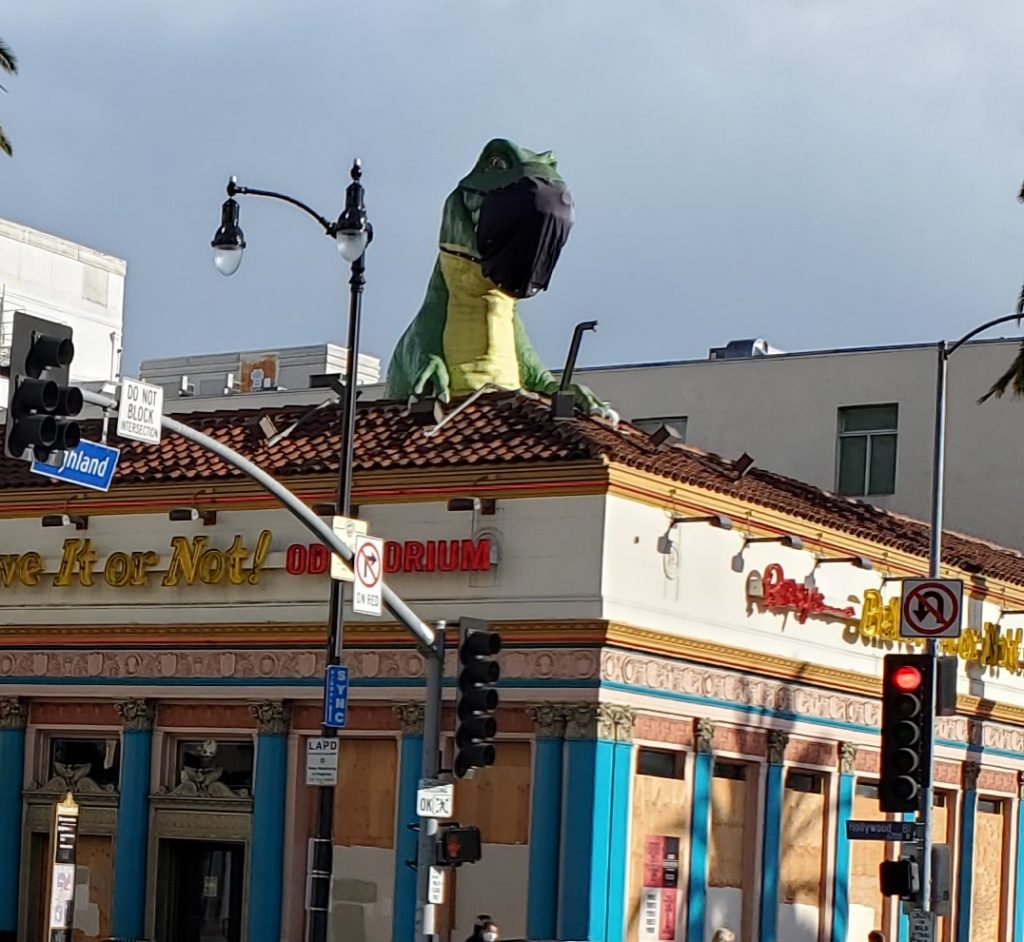
As Los Angeles opens its doors again to restaurants, movie theaters, theme parks and non-essential retail stores, life may return to (semi)normal — meaning traffic and congestion again on the city’s streets. Empty boulevards and freeways were a hallmark of COVID-19 for almost a year — actually making it a pleasure to drive around (except for the lousy third-world, pot-holed roads, but that’s another story) — but in the last few weeks traffic has worsened and is now approaching pre-pandemic levels: i.e., meaning it takes an hour to drive a mile that should take five minutes. Ah, life in the big city.
Want to add insult to injury? The annoying tourist buses are back!!
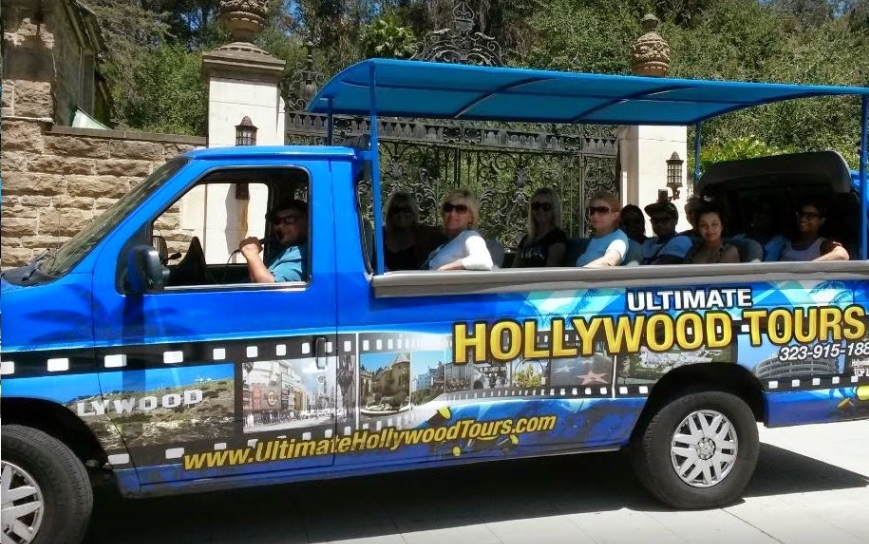
There was definitely a paucity of new movie releases last year, with most of the studios holding back their films until the COVID pandemic is over. And the films that have gone straight-to-streaming have been pretty unremarkable. Herewith is out Best of 2020 list, albeit short. And since it was a year of stay-at-home viewing, we’ve put together a list of the Top Streaming series that we’ve enjoyed over the past several years. Stay safe.
Accident (1967) From Joseph Losey, the legendary director of “The Servant,” “The Go-Between” and “The Assassination of Trotsky,” comes this classic melodrama with a screenplay by Harold Pinter. When one of his students is killed in a car accident, an Oxford professor (Dirk Bogarde) recounts the circumstances of their meeting. But as these turbulent memories unfold, they reveal a series of shocking relationships betrayed by adultery, obsession and self-destruction in which nothing is what it seems and everything has its cost. “Accident” was the second of three brilliant collaborations between filmmaker Losey and playwright Pinter; the first was the 1963 masterpiece “The Servant” and the third, the 1971 classic “The Go-Between.” Stanley Baker, Michael York, Vivien Merchant and Delphine Seyrig co-star.
Alejandro Jodorowsky: 4K Restoration Collection Deluxe box set includes the latest film by the great Chilean French artist/filmmaker Alejandro Jodorowsky, “Psychomagic, A Healing Art,” as well as “Fando y Lis,” “El Topo” and “The Holy Mountain” restored in 4K on Blu-ray, along with new bonus features and CD soundtracks of the latter two titles. At the age of 91, Jodorowsky is as relevant as he’s ever been. In addition to completing “Psychomagic, A Healing Art,” he supervised the color correction of the 4K restorations of his essential films using the original 35mm elements, with stunning and vibrant results.
Bad Education (2019) The fascinating true story of one of the largest public-school embezzlement scandals in America. Inspired by the true story that rocked the town of Roslyn, NY in 2004 and garnered attention nationwide, the film centers on the stunning impact and aftermath of a multi-million dollar embezzlement scheme, and follows Frank Tassone (High Jackman) and Pam Gluckin (Allison Janney), who reign over a popular Long Island school district on the verge of the nation’s top spot, spurring record college admissions and soaring property values. Between them, they racked up over $11.2 million dollars in extravagant personal expenses. Jackman and Janney are superb as cheaters-in-arms; direction and supporting cast are top-notch. Originally aired on HBO.
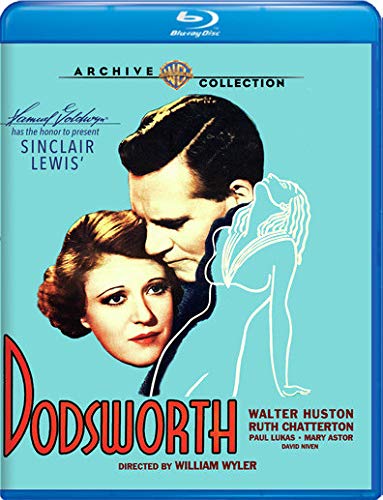 Dodsworth (1936) Newly restored in 2019 by The Academy of Motion Picture Arts & Sciences Film Archive and The Film Foundation in association with the Samuel Goldwyn Jr. Family Trust. Restoration funding provided by the George Lucas Family Foundation. William Wyler directs this superb adaptation of the Sinclair Lewis novel for master producer Samuel Goldwyn featuring an amazing ensemble of actors led by the great Walter Huston. A tale of middle-aged regret and recriminations and the rebirth of long dormant passions, Wyler cannily gets by the production code and delivers a decidedly adult drama that more comfortably sits alongside the pre-Codes than the post-Codes. Millionaire motor magnate Sam Dodsworth (Huston) sells the Dodsworth auto works in the small midwestern burg of Zenith to a large combine and embarks on a long-postponed honeymoon abroad. But long-time bride Fran (Ruth Chatterton) turns runaway when her head is turned by the swells of the continent (David Niven, Paul Lukas, Gregory Gaye). Bereft and adrift, Dodsworth furthers his friendship with young American widow Edith (Mary Astor) and the relationship uncorks long-buried desires in Dodsworth. But Fran is not done with Dodsworth, yet. Long unavailable, “Dodsworth” returns to print in a stunning restoration that properly gives new life to one of the greatest pictures of the 1930s – resplendent with glorious Black and White cinematography, fabulous art direction and superb mise-en-scene in service to a truly sophisticated cast.
Dodsworth (1936) Newly restored in 2019 by The Academy of Motion Picture Arts & Sciences Film Archive and The Film Foundation in association with the Samuel Goldwyn Jr. Family Trust. Restoration funding provided by the George Lucas Family Foundation. William Wyler directs this superb adaptation of the Sinclair Lewis novel for master producer Samuel Goldwyn featuring an amazing ensemble of actors led by the great Walter Huston. A tale of middle-aged regret and recriminations and the rebirth of long dormant passions, Wyler cannily gets by the production code and delivers a decidedly adult drama that more comfortably sits alongside the pre-Codes than the post-Codes. Millionaire motor magnate Sam Dodsworth (Huston) sells the Dodsworth auto works in the small midwestern burg of Zenith to a large combine and embarks on a long-postponed honeymoon abroad. But long-time bride Fran (Ruth Chatterton) turns runaway when her head is turned by the swells of the continent (David Niven, Paul Lukas, Gregory Gaye). Bereft and adrift, Dodsworth furthers his friendship with young American widow Edith (Mary Astor) and the relationship uncorks long-buried desires in Dodsworth. But Fran is not done with Dodsworth, yet. Long unavailable, “Dodsworth” returns to print in a stunning restoration that properly gives new life to one of the greatest pictures of the 1930s – resplendent with glorious Black and White cinematography, fabulous art direction and superb mise-en-scene in service to a truly sophisticated cast.
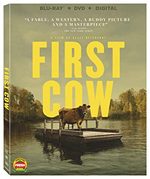 First Cow (2019) John Magaro, Orion Lee,Toby Jones, Ewen Bremner, René Auberjonois, Alia Shawkat. Two travelers, on the run from a band of vengeful hunters in the 1820s Northwest, dream of striking it rich — but their tenuous plan to make their fortune on the frontier comes to rely on the secret use of a wealthy businessman’s prized dairy cow. With their scheme landing somewhere between honest ingenuity and pure grift, filmmaker Kelly Reichardt finds a graceful and deeply moving origin story of America in their unlikely friendship and fragile life at the margins. The film premiered at the Telluride Film Festival in August 2019 and screened to great acclaim at the New York Film Festival in September 2019 and the Berlin International Film Festival in February 2020.
First Cow (2019) John Magaro, Orion Lee,Toby Jones, Ewen Bremner, René Auberjonois, Alia Shawkat. Two travelers, on the run from a band of vengeful hunters in the 1820s Northwest, dream of striking it rich — but their tenuous plan to make their fortune on the frontier comes to rely on the secret use of a wealthy businessman’s prized dairy cow. With their scheme landing somewhere between honest ingenuity and pure grift, filmmaker Kelly Reichardt finds a graceful and deeply moving origin story of America in their unlikely friendship and fragile life at the margins. The film premiered at the Telluride Film Festival in August 2019 and screened to great acclaim at the New York Film Festival in September 2019 and the Berlin International Film Festival in February 2020.
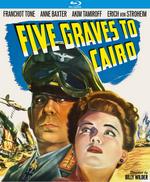 Five Graves to Cairo (1943) From Billy Wilder, the legendary director of “Double Indemnity,” “The Lost Weekend,” “Stalag 17,” “Some Like It Hot” and “The Apartment,” comes this wartime espionage thriller starring Franchot Tone, Anne Baxter, Akim Tamiroff, Erich von Stroheim and Peter van Eyck. John J. Bramble (Tone), the sole survivor of a British tank crew, makes his way to a desolate desert town where he is given refuge by a hotel owner (Tamiroff) and a French chambermaid (Baxter) who prepare to receive General Erwin Rommel (Stroheim) and his German staff. Posing as the hotel’s waiter, Bramble attempts to infiltrate Rommel’s inner circle and report the general’s plans to the Allies. Co-written by Wilder and Charles Brackett
Five Graves to Cairo (1943) From Billy Wilder, the legendary director of “Double Indemnity,” “The Lost Weekend,” “Stalag 17,” “Some Like It Hot” and “The Apartment,” comes this wartime espionage thriller starring Franchot Tone, Anne Baxter, Akim Tamiroff, Erich von Stroheim and Peter van Eyck. John J. Bramble (Tone), the sole survivor of a British tank crew, makes his way to a desolate desert town where he is given refuge by a hotel owner (Tamiroff) and a French chambermaid (Baxter) who prepare to receive General Erwin Rommel (Stroheim) and his German staff. Posing as the hotel’s waiter, Bramble attempts to infiltrate Rommel’s inner circle and report the general’s plans to the Allies. Co-written by Wilder and Charles Brackett
Ford v Ferrari (2019) by James Mangold; Matt Damon, Christian Bale, Jon Bernthal, Josh Lucas, Tracy Letts, Remo Girone. Based on the remarkable true story about Ford Motor Company’s attempt to create the world’s fastest car. American car designer Carroll Shelby (Damon) and the fearless British-born driver Ken Miles (Bale), together battled corporate interference and the laws of physics to build a revolutionary race car (the Ford GT40) and take on Enzo Ferrari at the 24 Hours of Le Mans in France in 1966. Good old-fashioned filmmaking.
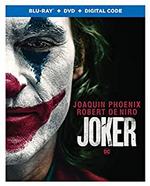 Joker (2019) An original, standalone story that explores the psyche of Arthur Fleck (the Joker to come) — indelibly portrayed by Joaquin Phoenix — a man struggling to find his way in Gotham’s fractured society. A clown-for-hire by day, he aspires to be a stand-up comic at night … but finds the joke always seems to be on him. Caught in a cyclical existence between apathy and cruelty, Arthur makes one bad decision that brings about a chain reaction of escalating events in this gritty character study. Co-stars Robert De Niro, Zazie Beetz, Frances Conroy, Brett Cullen. An auspicious change-of-pace for director Todd Phillips (“The Hangover” franchise) and a tour-de-force for Phoenix.
Joker (2019) An original, standalone story that explores the psyche of Arthur Fleck (the Joker to come) — indelibly portrayed by Joaquin Phoenix — a man struggling to find his way in Gotham’s fractured society. A clown-for-hire by day, he aspires to be a stand-up comic at night … but finds the joke always seems to be on him. Caught in a cyclical existence between apathy and cruelty, Arthur makes one bad decision that brings about a chain reaction of escalating events in this gritty character study. Co-stars Robert De Niro, Zazie Beetz, Frances Conroy, Brett Cullen. An auspicious change-of-pace for director Todd Phillips (“The Hangover” franchise) and a tour-de-force for Phoenix.
Mephisto (1981 — Hungary) Winner of the Academy Award for Best Foreign Language Film of 1981, “Mephisto” is a malevolent masterwork from Hungarian director István Szabó. It concerns a passionate but struggling actor (Klaus Maria Brandauer) who remains in Germany during the Nazi regime and reaps the rewards of this Faustian pact by finally achieving the stardom he has long craved. Brilliantly adapted from Klaus Mann’s 1936 novel, it is presented in a stunning 4K restoration by the Hungarian National Film Archive.
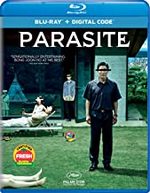 Parasite (2019 — South Korea) Directed by Bong Joon Ho (“The Host,” “Snowpiercer,” “Mother”). Kim Ki-taek and his family don’t put a lot of effort into steady jobs and hard work. They live in a dirty apartment in a basement and make a small amount of money, enough to survive, by completing low-paying side jobs and gigs. One day, Ki-taek’s son, Ki-woo, receives an offer that could help improve the family’s situation: Ki-woo’s friend, Min-hyuk, plans to study abroad and suggests that Ki-woo take over his English tutoring job with a wealthy family. Ki-woo is hired immediately, but uses his position, manipulation and lies, to get the family’s staff fired and replaced with the members of his family. Soon, a symbiotic relationship forms between the two families. The Kims provide “indispensable” luxury services while the Parks obliviously bankroll their entire household. When a parasitic interloper threatens the Kims’ newfound comfort, a savage, underhanded battle for dominance breaks out, threatening to destroy the fragile ecosystem between the Kims and the Parks. By turns darkly hilarious and heart-wrenching, “Parasite” showcases a modern master at the top of his game. “Parasite” is the first Asian film to win an Oscar for Best Film.
Parasite (2019 — South Korea) Directed by Bong Joon Ho (“The Host,” “Snowpiercer,” “Mother”). Kim Ki-taek and his family don’t put a lot of effort into steady jobs and hard work. They live in a dirty apartment in a basement and make a small amount of money, enough to survive, by completing low-paying side jobs and gigs. One day, Ki-taek’s son, Ki-woo, receives an offer that could help improve the family’s situation: Ki-woo’s friend, Min-hyuk, plans to study abroad and suggests that Ki-woo take over his English tutoring job with a wealthy family. Ki-woo is hired immediately, but uses his position, manipulation and lies, to get the family’s staff fired and replaced with the members of his family. Soon, a symbiotic relationship forms between the two families. The Kims provide “indispensable” luxury services while the Parks obliviously bankroll their entire household. When a parasitic interloper threatens the Kims’ newfound comfort, a savage, underhanded battle for dominance breaks out, threatening to destroy the fragile ecosystem between the Kims and the Parks. By turns darkly hilarious and heart-wrenching, “Parasite” showcases a modern master at the top of his game. “Parasite” is the first Asian film to win an Oscar for Best Film.
Yes, God, Yes (2020) An irreverent satire on religious principles and hormonal behavior, the film follows the sexual awakening of a Catholic High School teen girl; set in the early 2000s. Alice (Natalia Dyer), a strait-laced Catholic student, discovers more than she bargained for after an innocent AOL chat turns racy. Seeking redemption, she attends a mysterious religious retreat to try to suppress her urges, only to come face to face with everything she’s been trying so desperately to avoid. Original and charming script and direction by first-time director Karen Maine.
You Don’t Nomi (2019) In 1995, director Paul Verhoeven’s salacious “Showgirls” — a nasty, over-the-top sex-and-sadism filled exploration of the trials and tribulations of a young woman who hitchhikes to Las Vegas to make it as a chorus girl — opened with an NC-17 rating and alienated literally every film critic in the country. The film was trounced in reviews and died at the boxoffice. Verhoeven and screenwriter Joe Eszterhas had a falling out and star Elizabeth Berkley (who played the lead, Nomi Malone), fresh off the bland TV series “Saved by the Bell,” was dropped by her agent and was pretty much black-listed in Hollywood. Because of its notoriety, “Showgirls” was a success on home video; since its release it has amassed north of $100 million. In the intervening years, “Showgirls” has become a cult classic, and has been re-evaluated as more than just a sensational, trashy nudie exploitation film, transcending the “so-bad-it’s-good” category. The film has been defended by such critics as J. Hoberman and Jonathan Rosenbaum. Even Jacques Rivette, founder of the French New Wave, piped in, calling it in 1998 “one of the great American films of the last few years” for its unflinching look at the dark side of entertainment celebrityhood. Even Berkley’s career picked up; she went on to star in dozens of Broadway productions — to critical raves — and carved out scores of roles on TV. In this documentary, a chorus of film critics and fervent devotees explore the complicated afterlife of the film, from its disastrous release to cult adoration and extraordinary redemption. Director Jeffrey McHale intersperses clips from other Verhoeven movies to place “Showgirls” in the context of the director’s ouvre (most of his films have contained vibrant scenes of sex and violence (“Turkish Delight,” “Katie Tippel,” “RoboCop,” “Total Recall” and the notorious “Basic Instinct”) as well as centering it among other sex-oriented big screen productions (“Fatal Attraction” among them). And there’s plenty of footage from midnight showings. Unfortunately, there’s no modern interviews with Verhoeven, Eszterhas, Berkley or co-stars Kyle MacLachlan and Gina Gershon (both of whose careers have flourished, thank you). All in all it’s a fun adventure.
And don’t forget the following Criterion releases:
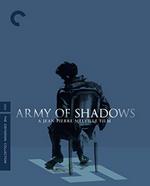 Army of Shadows (1969 — France) The most personal film by the underworld poet Jean-Pierre Melville, who had participated in the French Resistance himself, this tragic masterpiece, based on a novel by Joseph Kessel, recounts the struggles and sacrifices of those who fought in the Resistance. Lino Ventura, Paul Meurisse, Jean-Pierre Cassel, and the incomparable Simone Signoret star as intrepid underground fighters who must grapple with their conception of honor in their battle against Hitler’s regime. Long underappreciated in France and unseen in the United States, the atmospheric and gripping thriller Army of Shadows is now widely recognized as the summit of Melville’s career, channeling the exquisite minimalism of his gangster films to create an unsparing tale of defiance in the face of seemingly insurmountable odds.
Army of Shadows (1969 — France) The most personal film by the underworld poet Jean-Pierre Melville, who had participated in the French Resistance himself, this tragic masterpiece, based on a novel by Joseph Kessel, recounts the struggles and sacrifices of those who fought in the Resistance. Lino Ventura, Paul Meurisse, Jean-Pierre Cassel, and the incomparable Simone Signoret star as intrepid underground fighters who must grapple with their conception of honor in their battle against Hitler’s regime. Long underappreciated in France and unseen in the United States, the atmospheric and gripping thriller Army of Shadows is now widely recognized as the summit of Melville’s career, channeling the exquisite minimalism of his gangster films to create an unsparing tale of defiance in the face of seemingly insurmountable odds.
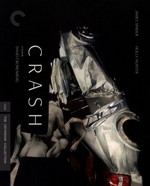 Crash (1996) For this icily erotic fusion of flesh and machine, David Cronenberg adapted J. G. Ballard’s future-shock novel of the 1970s into one of the most singular and provocative films of the 1990s. A traffic collision involving a disaffected commercial producer, James (James Spader), and an enigmatic doctor, Helen (Holly Hunter), brings them, along with James’s wife, Catherine (Deborah Kara Unger, in a sublimely detached performance), together in a crucible of blood and broken glass — and it’s not long before they are all initiated into a kinky, death-obsessed underworld of sadomasochistic car-crash fetishists for whom twisted metal and scar tissue are the ultimate turn-ons. Controversial from the moment it premiered at Cannes — where it won a Special Jury Prize “for originality, for daring, and for audacity†— “Crash” has since taken its place as a key text of late-20th-century cinema, a disturbingly seductive treatise on the relationships between humanity and technology, sex and violence, that is as unsettling as it is mesmerizing.
Crash (1996) For this icily erotic fusion of flesh and machine, David Cronenberg adapted J. G. Ballard’s future-shock novel of the 1970s into one of the most singular and provocative films of the 1990s. A traffic collision involving a disaffected commercial producer, James (James Spader), and an enigmatic doctor, Helen (Holly Hunter), brings them, along with James’s wife, Catherine (Deborah Kara Unger, in a sublimely detached performance), together in a crucible of blood and broken glass — and it’s not long before they are all initiated into a kinky, death-obsessed underworld of sadomasochistic car-crash fetishists for whom twisted metal and scar tissue are the ultimate turn-ons. Controversial from the moment it premiered at Cannes — where it won a Special Jury Prize “for originality, for daring, and for audacity†— “Crash” has since taken its place as a key text of late-20th-century cinema, a disturbingly seductive treatise on the relationships between humanity and technology, sex and violence, that is as unsettling as it is mesmerizing.
 The Lost Honor of Katharina Blum (1975 — Germany) When a young woman spends the night with an alleged terrorist, her quiet, ordered life falls into ruins. “The Lost Honor of Katharina Blum” portrays an anxious era in West Germany amid a crumbling postwar political consensus. Katharina, though apparently innocent, suddenly becomes a suspect, falling prey to a vicious smear campaign by the police and a ruthless tabloid journalist that tests the limits of her dignity and her sanity. Crafting one of the most accessible and direct works of 1970s political filmmaking, Volker Schlöndorff and Margarethe von Trotta deliver a powerful adaptation of Heinrich Böll’s novel, a stinging commentary on state power, individual freedom, and media manipulation that is as relevant today as when it was released.
The Lost Honor of Katharina Blum (1975 — Germany) When a young woman spends the night with an alleged terrorist, her quiet, ordered life falls into ruins. “The Lost Honor of Katharina Blum” portrays an anxious era in West Germany amid a crumbling postwar political consensus. Katharina, though apparently innocent, suddenly becomes a suspect, falling prey to a vicious smear campaign by the police and a ruthless tabloid journalist that tests the limits of her dignity and her sanity. Crafting one of the most accessible and direct works of 1970s political filmmaking, Volker Schlöndorff and Margarethe von Trotta deliver a powerful adaptation of Heinrich Böll’s novel, a stinging commentary on state power, individual freedom, and media manipulation that is as relevant today as when it was released.
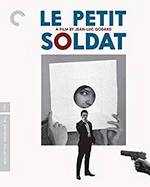 Le petit soldat (1963 — France) Before his convention-shattering debut, “Breathless,” had even premiered, Jean-Luc Godard leapt into the making of his second feature, a thriller that would tackle the most controversial subject in France: the use of torture in the Algerian War. Despite his lack of political convictions, photojournalist Bruno Forestier (Michel Subor) is roped into a paramilitary group waging a shadow war in Geneva against the Algerian independence movement. Anna Karina (in her first collaboration with Godard, whose camera is visibly besotted with her) is beguiling as the mysterious woman with whom Forestier becomes infatuated. Banned for two and a half years by French censors for its depiction of brutal tactics on the part of the French government and the Algerian fighters alike, “Le petit soldat” finds the young Godard already retooling cinema as a vehicle for existential inquiry, political argument, and ephemeral portraiture — in other words, as a medium for delivering “truth twenty-four times per second.â€
Le petit soldat (1963 — France) Before his convention-shattering debut, “Breathless,” had even premiered, Jean-Luc Godard leapt into the making of his second feature, a thriller that would tackle the most controversial subject in France: the use of torture in the Algerian War. Despite his lack of political convictions, photojournalist Bruno Forestier (Michel Subor) is roped into a paramilitary group waging a shadow war in Geneva against the Algerian independence movement. Anna Karina (in her first collaboration with Godard, whose camera is visibly besotted with her) is beguiling as the mysterious woman with whom Forestier becomes infatuated. Banned for two and a half years by French censors for its depiction of brutal tactics on the part of the French government and the Algerian fighters alike, “Le petit soldat” finds the young Godard already retooling cinema as a vehicle for existential inquiry, political argument, and ephemeral portraiture — in other words, as a medium for delivering “truth twenty-four times per second.â€
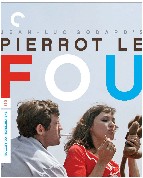 Pierrot le fou (1965 — France) Dissatisfied in marriage and life, Ferdinand (Jean-Paul Belmondo) takes to the road with the babysitter, his ex-lover Marianne Renoir (Anna Karina), and leaves the bourgeois world behind. Yet this is no normal road trip: the 10th feature in six years by genius auteur Jean-Luc Godard is a stylish mash-up of anticonsumerist satire, au courant politics, and comic-book aesthetics, as well as a violent, zigzag tale of, as Godard called them, “the last romantic couple.†With blissful color imagery by cinematographer Raoul Coutard and Belmondo and Karina at their most animated, “Pierrot le fou” is one of the high points of the French New Wave, and was Godard’s last frolic before he moved ever further into radical cinema.
Pierrot le fou (1965 — France) Dissatisfied in marriage and life, Ferdinand (Jean-Paul Belmondo) takes to the road with the babysitter, his ex-lover Marianne Renoir (Anna Karina), and leaves the bourgeois world behind. Yet this is no normal road trip: the 10th feature in six years by genius auteur Jean-Luc Godard is a stylish mash-up of anticonsumerist satire, au courant politics, and comic-book aesthetics, as well as a violent, zigzag tale of, as Godard called them, “the last romantic couple.†With blissful color imagery by cinematographer Raoul Coutard and Belmondo and Karina at their most animated, “Pierrot le fou” is one of the high points of the French New Wave, and was Godard’s last frolic before he moved ever further into radical cinema.
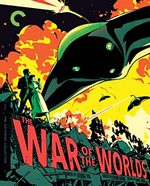 The War of the Worlds (1953) A mysterious, meteorlike object has landed in a small California town. All clocks have stopped. A fleet of glowing green UFOs hovers menacingly over the entire globe. The Martian invasion of Earth has begun, and it seems that nothing — neither military might nor the scientific know-how of nuclear physicist Dr. Clayton Forrester (Gene Barry) — can stop it. In the expert hands of genre specialists George Pal and Byron Haskin, H. G. Wells’s end-of-civilization classic receives a chilling Cold War-era update, complete with hallucinatory Technicolor and visionary, Oscar-winning special effects. Emblazoned with iconographic images of 1950s science fiction, “The War of the Worlds” is both an influential triumph of visual imagination and a still-disquieting document of the wonder and terror of the atomic age.
The War of the Worlds (1953) A mysterious, meteorlike object has landed in a small California town. All clocks have stopped. A fleet of glowing green UFOs hovers menacingly over the entire globe. The Martian invasion of Earth has begun, and it seems that nothing — neither military might nor the scientific know-how of nuclear physicist Dr. Clayton Forrester (Gene Barry) — can stop it. In the expert hands of genre specialists George Pal and Byron Haskin, H. G. Wells’s end-of-civilization classic receives a chilling Cold War-era update, complete with hallucinatory Technicolor and visionary, Oscar-winning special effects. Emblazoned with iconographic images of 1950s science fiction, “The War of the Worlds” is both an influential triumph of visual imagination and a still-disquieting document of the wonder and terror of the atomic age.
First off, I wanted to thank everyone who wished me a happy birthday last month. It’s taken me awhile to process three-quarters of a century of insanity, from radioactive rain and drop drills to Donald Trump and COVID, but I popped back. So thank you.
Next I want to report that I got my Pfizer vaccinations and so far there have been no side effects — aside from Bill Gates’ voice, which I keep hearing in my head.
Driving up Highland Avenue near the Hollywood Bowl this week I saw a trash can on fire just north of Franklin. There was no-one around; the sidewalks were deserted and there were no homeless Angelinos to be seen. Spontaneous combustion? Thankfully, LA is not burning, but many of our streets look like the aftermath of a five-alarm fire — clothing, mattresses, wood, food, junk, and all sorts of garbage spilling out all over the sidewalks. The homeless problem just keeps getting worse (50,000 and counting). The city has plenty of money to at least attempt to fix the problem but I don’t think they know exactly what to do. I don’t.

Meantime, some crime in LA has increased, with homicides, vehicle theft and assaults rising. Interestingly, and contrary to what a lot of my neighbors believe (especially when our mailboxes have been jimmied open twice in the last three months), robberies and burglaries are down.
As a journalist I’ve always marveled at how the media skews it’s coverage and gives some events more importance than others. So I must admit that I was really excited about this past weekend’s “Oprah With Meghan and Harry” broadcast as I can’t imagine anything more important than a Royal Feud filled with racism. Except maybe for the bloodshed in Myanmar.

Oh yeah, and though at risk of alienating some of my friends, re: Mia vs Woody, I have two words: McMartin Preschool.
Again, thanks for the Happy Birthday wishes.
Harley
03-08-2021
From Bill Mohr’s Blog, Koan Kinship:
Lawrence Ferlinghetti is Dead; Long Live City Lights
Feb. 23, 2021 — Lawrence Ferlinghetti (1919 – 2021)
Early this afternoon, I heard the news that Lawrence Ferlinghetti had died. I guess that Naomi Replansky will remain the oldest living American poet for at least a little longer.
Tributes to him will no doubt flourish as the obituaries trot out the familiar details, but the only important tribute has already been paid by those who cared the most about his most significant accomplishment, a bookstore that took up the 18th century model of also being a publisher. In the early months of the Pandemic, City Lights Bookstore held a fundraiser in hopes of stabilizing its chances of surviving the loss of its flow of daily customers. The fundraiser was so successful that the bookstore generated a minor endowment that will nurture it through at least the rest of this decade. In 2028, the store will turn 75 years old. It is not too early to plan on making that occasion a chance to reflect on the hundreds of thousands of copies of books that have found grateful readers thanks to this store’s visibility.
And from NPR:
Lawrence Ferlinghetti has died in San Francisco. He was 101. Ferlinghetti is probably best known for three things: his Beat poetry, his San Francisco bookstore and small press, and his defense of the First Amendment in a famous court case.
His most famous work is a 1958 collection of poetry called A Coney Island of the Mind. In it, he compares the horrors depicted in Francisco Goya’s paintings of the Napoleonic wars to scenes of post-World War II America.
A Coney Island of the Mind was translated into nine languages and sold more than a million copies. Despite his popularity, Ferlinghetti was never considered on par with some of the other Beat writers he called his friends — Jack Kerouac, Gregory Corso and Allen Ginsberg.
Even though Ferlinghetti was raised in New York, he said he never met those East Coast writers until he moved to San Francisco and opened his bookstore, City Lights.
“A bookstore is a natural place for poets to hang out,” Ferlinghetti said in a 1994 interview. “And they started showing up there right from the beginning.”
City Lights became a magnet for West Coast intellectuals and later a tourist destination.
Ferlinghetti also started a small press called City Lights Books. In the fall of 1956, he published a little 75-cent paperback, the first edition of Howl by Allen Ginsberg.
Howl was a new type of poetry that gave voice to an undercurrent of dissatisfaction in Dwight Eisenhower’s America. It became an anthem for the nascent counterculture.
“Before Allen Ginsberg’s Howl, the state of poetry in America is a little bit like the way it is today: poetry about poetry,” Ferlinghetti said in 1994. “Howl knocked the sides out of things, just the way rock music in the ’60s knocked the sides out of the old music world.”
Howl included passages describing sex — both between men and women and between two men — and Ferlinghetti was arrested in 1957 on charges of publishing obscene material. At the end of a long federal trial, the poem was found to have redeeming social importance and therefore to not be obscene.
Read more here.
Sunday, January 17, 2021
Gerald Locklin (1941-2021)
The W-E Bicoastal Poetry Reading Series took place this afternoon and it went very well, though my heart was incredibly heavy. Shortly after 1 p.m., I learned that Gerald Locklin had died shortly before 8 a.m. Eileen Klink, the chair of the English Department at CSU Long Beach, sent out an email mid-day announcing his death, which was due to covid-19.
Most of the Los Angeles poetry community has heard the news by now. Out of respect for Gerry and his family and friends, I am not going to saything other than he was one of the founders of Stand Up poetry, a movement whose earliest practitioners were based in Long Beach. It became well enough known that Edward Field make a special point in his anthology A GEOGRAPHY OF POETS of mentioning the unlikelihood of anything poetic coming out of Long Beach. Poetry in California was supposed to have its pedigree in North Beach, not Long Beach, but Locklin had a gift for the comic poem that influenced an entire generation of poets in Southern California.
If Locklin went unrecognized by East Coast canon shapers, he didn’t let on that it bothered him that much. He was too busy working on the next poem. I’ll grant anyone that it’s impossible to publish 3,000 poems and have all of them be of equal quality, but it’s not necessarily the poet’s job to be the adjudicator. Some of his finest poems are his ekphrastic commentaries that he started producing in the last portion of his writing life, and I don’t believe he would been so deft at that form if he devoted himself to a poetics of casual improvisation.
If you are not familiar with his work, it shouldn’t be too hard to find one of his books or a few representative poems in an anthology such as Charles Harper Webb’s STAND UP POETRY or my anthology POETRY LOVES POETRY. or Suzanne Lummis’s GRADN PASSION and WIDE AWAKE: Poets of Losn Angeles and Beyond.
Gerald Locklin was born in 1941 in Rochester, New York and went to Catholic schools, an experience memorably recorded in his classic Stand Up poem, “The Criminal Mentality.†He earned a M.A. and Ph.D. from Arizona State University, which is where I believe he came to know one of his early compatriots in the Stand Up movement, Ron Koertge. Locklin started teaching college in Southern California in the mid-1960s and earned a formidable reputation as a professor whose knowledge of literature matched his willingness to spend time in local bars: one of his best-known early. poems was entitled “Beer.†His literary alter ego, Toad, never seemed to lack for anecdotal levity.
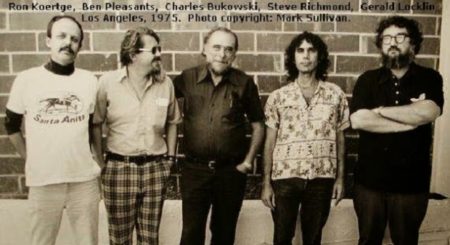
L to R: Ron Koertge, Ben Pleasants, Charles Bukowski, Steve Richmond, Gerald Locklin. Photograph by Mark Sullivan, Los Angeles, 1975.
In an interview, Charles Bukowski was asked about his opinion of contemporary poets in Los Angeles. Bukowski dismissed them all as mediocrities, except for one: Gerald Locklin. It should be emphasized that Locklin did not earn that praise because he was Bukowski’s drinking buddy. Locklin more than once commented that the secret of his relationship with Bukowski was that he kept his social distance from him.
Fortunately for the rest of us in Los Angeles, Gerry embraced us with a Fastaffian generosity. I could say he will be missed, but that had already begun before he died. I am lucky enough to have those memories to console me. R.I.P., Gerry.
Reprinted from Koan Kinship– Bill Mohr’s Blog
« go back —
keep looking »




 Dodsworth (1936) Newly restored in 2019 by The Academy of Motion Picture Arts & Sciences Film Archive and The Film Foundation in association with the Samuel Goldwyn Jr. Family Trust. Restoration funding provided by the George Lucas Family Foundation. William Wyler directs this superb adaptation of the Sinclair Lewis novel for master producer Samuel Goldwyn featuring an amazing ensemble of actors led by the great Walter Huston. A tale of middle-aged regret and recriminations and the rebirth of long dormant passions, Wyler cannily gets by the production code and delivers a decidedly adult drama that more comfortably sits alongside the pre-Codes than the post-Codes. Millionaire motor magnate Sam Dodsworth (Huston) sells the Dodsworth auto works in the small midwestern burg of Zenith to a large combine and embarks on a long-postponed honeymoon abroad. But long-time bride Fran (Ruth Chatterton) turns runaway when her head is turned by the swells of the continent (David Niven, Paul Lukas, Gregory Gaye). Bereft and adrift, Dodsworth furthers his friendship with young American widow Edith (Mary Astor) and the relationship uncorks long-buried desires in Dodsworth. But Fran is not done with Dodsworth, yet. Long unavailable, “Dodsworth” returns to print in a stunning restoration that properly gives new life to one of the greatest pictures of the 1930s – resplendent with glorious Black and White cinematography, fabulous art direction and superb mise-en-scene in service to a truly sophisticated cast.
Dodsworth (1936) Newly restored in 2019 by The Academy of Motion Picture Arts & Sciences Film Archive and The Film Foundation in association with the Samuel Goldwyn Jr. Family Trust. Restoration funding provided by the George Lucas Family Foundation. William Wyler directs this superb adaptation of the Sinclair Lewis novel for master producer Samuel Goldwyn featuring an amazing ensemble of actors led by the great Walter Huston. A tale of middle-aged regret and recriminations and the rebirth of long dormant passions, Wyler cannily gets by the production code and delivers a decidedly adult drama that more comfortably sits alongside the pre-Codes than the post-Codes. Millionaire motor magnate Sam Dodsworth (Huston) sells the Dodsworth auto works in the small midwestern burg of Zenith to a large combine and embarks on a long-postponed honeymoon abroad. But long-time bride Fran (Ruth Chatterton) turns runaway when her head is turned by the swells of the continent (David Niven, Paul Lukas, Gregory Gaye). Bereft and adrift, Dodsworth furthers his friendship with young American widow Edith (Mary Astor) and the relationship uncorks long-buried desires in Dodsworth. But Fran is not done with Dodsworth, yet. Long unavailable, “Dodsworth” returns to print in a stunning restoration that properly gives new life to one of the greatest pictures of the 1930s – resplendent with glorious Black and White cinematography, fabulous art direction and superb mise-en-scene in service to a truly sophisticated cast. First Cow (2019) John Magaro, Orion Lee,Toby Jones, Ewen Bremner, René Auberjonois, Alia Shawkat. Two travelers, on the run from a band of vengeful hunters in the 1820s Northwest, dream of striking it rich — but their tenuous plan to make their fortune on the frontier comes to rely on the secret use of a wealthy businessman’s prized dairy cow. With their scheme landing somewhere between honest ingenuity and pure grift, filmmaker Kelly Reichardt finds a graceful and deeply moving origin story of America in their unlikely friendship and fragile life at the margins. The film premiered at the Telluride Film Festival in August 2019 and screened to great acclaim at the New York Film Festival in September 2019 and the Berlin International Film Festival in February 2020.
First Cow (2019) John Magaro, Orion Lee,Toby Jones, Ewen Bremner, René Auberjonois, Alia Shawkat. Two travelers, on the run from a band of vengeful hunters in the 1820s Northwest, dream of striking it rich — but their tenuous plan to make their fortune on the frontier comes to rely on the secret use of a wealthy businessman’s prized dairy cow. With their scheme landing somewhere between honest ingenuity and pure grift, filmmaker Kelly Reichardt finds a graceful and deeply moving origin story of America in their unlikely friendship and fragile life at the margins. The film premiered at the Telluride Film Festival in August 2019 and screened to great acclaim at the New York Film Festival in September 2019 and the Berlin International Film Festival in February 2020. Five Graves to Cairo (1943) From Billy Wilder, the legendary director of “Double Indemnity,” “The Lost Weekend,” “Stalag 17,” “Some Like It Hot” and “The Apartment,” comes this wartime espionage thriller starring Franchot Tone, Anne Baxter, Akim Tamiroff, Erich von Stroheim and Peter van Eyck. John J. Bramble (Tone), the sole survivor of a British tank crew, makes his way to a desolate desert town where he is given refuge by a hotel owner (Tamiroff) and a French chambermaid (Baxter) who prepare to receive General Erwin Rommel (Stroheim) and his German staff. Posing as the hotel’s waiter, Bramble attempts to infiltrate Rommel’s inner circle and report the general’s plans to the Allies. Co-written by Wilder and Charles Brackett
Five Graves to Cairo (1943) From Billy Wilder, the legendary director of “Double Indemnity,” “The Lost Weekend,” “Stalag 17,” “Some Like It Hot” and “The Apartment,” comes this wartime espionage thriller starring Franchot Tone, Anne Baxter, Akim Tamiroff, Erich von Stroheim and Peter van Eyck. John J. Bramble (Tone), the sole survivor of a British tank crew, makes his way to a desolate desert town where he is given refuge by a hotel owner (Tamiroff) and a French chambermaid (Baxter) who prepare to receive General Erwin Rommel (Stroheim) and his German staff. Posing as the hotel’s waiter, Bramble attempts to infiltrate Rommel’s inner circle and report the general’s plans to the Allies. Co-written by Wilder and Charles Brackett Joker (2019) An original, standalone story that explores the psyche of Arthur Fleck (the Joker to come) — indelibly portrayed by Joaquin Phoenix — a man struggling to find his way in Gotham’s fractured society. A clown-for-hire by day, he aspires to be a stand-up comic at night … but finds the joke always seems to be on him. Caught in a cyclical existence between apathy and cruelty, Arthur makes one bad decision that brings about a chain reaction of escalating events in this gritty character study. Co-stars Robert De Niro, Zazie Beetz, Frances Conroy, Brett Cullen. An auspicious change-of-pace for director Todd Phillips (“The Hangover” franchise) and a tour-de-force for Phoenix.
Joker (2019) An original, standalone story that explores the psyche of Arthur Fleck (the Joker to come) — indelibly portrayed by Joaquin Phoenix — a man struggling to find his way in Gotham’s fractured society. A clown-for-hire by day, he aspires to be a stand-up comic at night … but finds the joke always seems to be on him. Caught in a cyclical existence between apathy and cruelty, Arthur makes one bad decision that brings about a chain reaction of escalating events in this gritty character study. Co-stars Robert De Niro, Zazie Beetz, Frances Conroy, Brett Cullen. An auspicious change-of-pace for director Todd Phillips (“The Hangover” franchise) and a tour-de-force for Phoenix. Parasite (2019 — South Korea) Directed by Bong Joon Ho (“The Host,” “Snowpiercer,” “Mother”). Kim Ki-taek and his family don’t put a lot of effort into steady jobs and hard work. They live in a dirty apartment in a basement and make a small amount of money, enough to survive, by completing low-paying side jobs and gigs. One day, Ki-taek’s son, Ki-woo, receives an offer that could help improve the family’s situation: Ki-woo’s friend, Min-hyuk, plans to study abroad and suggests that Ki-woo take over his English tutoring job with a wealthy family. Ki-woo is hired immediately, but uses his position, manipulation and lies, to get the family’s staff fired and replaced with the members of his family. Soon, a symbiotic relationship forms between the two families. The Kims provide “indispensable” luxury services while the Parks obliviously bankroll their entire household. When a parasitic interloper threatens the Kims’ newfound comfort, a savage, underhanded battle for dominance breaks out, threatening to destroy the fragile ecosystem between the Kims and the Parks. By turns darkly hilarious and heart-wrenching, “Parasite” showcases a modern master at the top of his game. “Parasite” is the first Asian film to win an Oscar for Best Film.
Parasite (2019 — South Korea) Directed by Bong Joon Ho (“The Host,” “Snowpiercer,” “Mother”). Kim Ki-taek and his family don’t put a lot of effort into steady jobs and hard work. They live in a dirty apartment in a basement and make a small amount of money, enough to survive, by completing low-paying side jobs and gigs. One day, Ki-taek’s son, Ki-woo, receives an offer that could help improve the family’s situation: Ki-woo’s friend, Min-hyuk, plans to study abroad and suggests that Ki-woo take over his English tutoring job with a wealthy family. Ki-woo is hired immediately, but uses his position, manipulation and lies, to get the family’s staff fired and replaced with the members of his family. Soon, a symbiotic relationship forms between the two families. The Kims provide “indispensable” luxury services while the Parks obliviously bankroll their entire household. When a parasitic interloper threatens the Kims’ newfound comfort, a savage, underhanded battle for dominance breaks out, threatening to destroy the fragile ecosystem between the Kims and the Parks. By turns darkly hilarious and heart-wrenching, “Parasite” showcases a modern master at the top of his game. “Parasite” is the first Asian film to win an Oscar for Best Film. Army of Shadows (1969 — France) The most personal film by the underworld poet Jean-Pierre Melville, who had participated in the French Resistance himself, this tragic masterpiece, based on a novel by Joseph Kessel, recounts the struggles and sacrifices of those who fought in the Resistance. Lino Ventura, Paul Meurisse, Jean-Pierre Cassel, and the incomparable Simone Signoret star as intrepid underground fighters who must grapple with their conception of honor in their battle against Hitler’s regime. Long underappreciated in France and unseen in the United States, the atmospheric and gripping thriller Army of Shadows is now widely recognized as the summit of Melville’s career, channeling the exquisite minimalism of his gangster films to create an unsparing tale of defiance in the face of seemingly insurmountable odds.
Army of Shadows (1969 — France) The most personal film by the underworld poet Jean-Pierre Melville, who had participated in the French Resistance himself, this tragic masterpiece, based on a novel by Joseph Kessel, recounts the struggles and sacrifices of those who fought in the Resistance. Lino Ventura, Paul Meurisse, Jean-Pierre Cassel, and the incomparable Simone Signoret star as intrepid underground fighters who must grapple with their conception of honor in their battle against Hitler’s regime. Long underappreciated in France and unseen in the United States, the atmospheric and gripping thriller Army of Shadows is now widely recognized as the summit of Melville’s career, channeling the exquisite minimalism of his gangster films to create an unsparing tale of defiance in the face of seemingly insurmountable odds. Crash (1996) For this icily erotic fusion of flesh and machine, David Cronenberg adapted J. G. Ballard’s future-shock novel of the 1970s into one of the most singular and provocative films of the 1990s. A traffic collision involving a disaffected commercial producer, James (James Spader), and an enigmatic doctor, Helen (Holly Hunter), brings them, along with James’s wife, Catherine (Deborah Kara Unger, in a sublimely detached performance), together in a crucible of blood and broken glass — and it’s not long before they are all initiated into a kinky, death-obsessed underworld of sadomasochistic car-crash fetishists for whom twisted metal and scar tissue are the ultimate turn-ons. Controversial from the moment it premiered at Cannes — where it won a Special Jury Prize “for originality, for daring, and for audacity†— “Crash” has since taken its place as a key text of late-20th-century cinema, a disturbingly seductive treatise on the relationships between humanity and technology, sex and violence, that is as unsettling as it is mesmerizing.
Crash (1996) For this icily erotic fusion of flesh and machine, David Cronenberg adapted J. G. Ballard’s future-shock novel of the 1970s into one of the most singular and provocative films of the 1990s. A traffic collision involving a disaffected commercial producer, James (James Spader), and an enigmatic doctor, Helen (Holly Hunter), brings them, along with James’s wife, Catherine (Deborah Kara Unger, in a sublimely detached performance), together in a crucible of blood and broken glass — and it’s not long before they are all initiated into a kinky, death-obsessed underworld of sadomasochistic car-crash fetishists for whom twisted metal and scar tissue are the ultimate turn-ons. Controversial from the moment it premiered at Cannes — where it won a Special Jury Prize “for originality, for daring, and for audacity†— “Crash” has since taken its place as a key text of late-20th-century cinema, a disturbingly seductive treatise on the relationships between humanity and technology, sex and violence, that is as unsettling as it is mesmerizing. The Lost Honor of Katharina Blum (1975 — Germany) When a young woman spends the night with an alleged terrorist, her quiet, ordered life falls into ruins. “The Lost Honor of Katharina Blum” portrays an anxious era in West Germany amid a crumbling postwar political consensus. Katharina, though apparently innocent, suddenly becomes a suspect, falling prey to a vicious smear campaign by the police and a ruthless tabloid journalist that tests the limits of her dignity and her sanity. Crafting one of the most accessible and direct works of 1970s political filmmaking, Volker Schlöndorff and Margarethe von Trotta deliver a powerful adaptation of Heinrich Böll’s novel, a stinging commentary on state power, individual freedom, and media manipulation that is as relevant today as when it was released.
The Lost Honor of Katharina Blum (1975 — Germany) When a young woman spends the night with an alleged terrorist, her quiet, ordered life falls into ruins. “The Lost Honor of Katharina Blum” portrays an anxious era in West Germany amid a crumbling postwar political consensus. Katharina, though apparently innocent, suddenly becomes a suspect, falling prey to a vicious smear campaign by the police and a ruthless tabloid journalist that tests the limits of her dignity and her sanity. Crafting one of the most accessible and direct works of 1970s political filmmaking, Volker Schlöndorff and Margarethe von Trotta deliver a powerful adaptation of Heinrich Böll’s novel, a stinging commentary on state power, individual freedom, and media manipulation that is as relevant today as when it was released. Le petit soldat (1963 — France) Before his convention-shattering debut, “Breathless,” had even premiered, Jean-Luc Godard leapt into the making of his second feature, a thriller that would tackle the most controversial subject in France: the use of torture in the Algerian War. Despite his lack of political convictions, photojournalist Bruno Forestier (Michel Subor) is roped into a paramilitary group waging a shadow war in Geneva against the Algerian independence movement. Anna Karina (in her first collaboration with Godard, whose camera is visibly besotted with her) is beguiling as the mysterious woman with whom Forestier becomes infatuated. Banned for two and a half years by French censors for its depiction of brutal tactics on the part of the French government and the Algerian fighters alike, “Le petit soldat” finds the young Godard already retooling cinema as a vehicle for existential inquiry, political argument, and ephemeral portraiture — in other words, as a medium for delivering “truth twenty-four times per second.â€
Le petit soldat (1963 — France) Before his convention-shattering debut, “Breathless,” had even premiered, Jean-Luc Godard leapt into the making of his second feature, a thriller that would tackle the most controversial subject in France: the use of torture in the Algerian War. Despite his lack of political convictions, photojournalist Bruno Forestier (Michel Subor) is roped into a paramilitary group waging a shadow war in Geneva against the Algerian independence movement. Anna Karina (in her first collaboration with Godard, whose camera is visibly besotted with her) is beguiling as the mysterious woman with whom Forestier becomes infatuated. Banned for two and a half years by French censors for its depiction of brutal tactics on the part of the French government and the Algerian fighters alike, “Le petit soldat” finds the young Godard already retooling cinema as a vehicle for existential inquiry, political argument, and ephemeral portraiture — in other words, as a medium for delivering “truth twenty-four times per second.â€ Pierrot le fou (1965 — France) Dissatisfied in marriage and life, Ferdinand (Jean-Paul Belmondo) takes to the road with the babysitter, his ex-lover Marianne Renoir (Anna Karina), and leaves the bourgeois world behind. Yet this is no normal road trip: the 10th feature in six years by genius auteur Jean-Luc Godard is a stylish mash-up of anticonsumerist satire, au courant politics, and comic-book aesthetics, as well as a violent, zigzag tale of, as Godard called them, “the last romantic couple.†With blissful color imagery by cinematographer Raoul Coutard and Belmondo and Karina at their most animated, “Pierrot le fou” is one of the high points of the French New Wave, and was Godard’s last frolic before he moved ever further into radical cinema.
Pierrot le fou (1965 — France) Dissatisfied in marriage and life, Ferdinand (Jean-Paul Belmondo) takes to the road with the babysitter, his ex-lover Marianne Renoir (Anna Karina), and leaves the bourgeois world behind. Yet this is no normal road trip: the 10th feature in six years by genius auteur Jean-Luc Godard is a stylish mash-up of anticonsumerist satire, au courant politics, and comic-book aesthetics, as well as a violent, zigzag tale of, as Godard called them, “the last romantic couple.†With blissful color imagery by cinematographer Raoul Coutard and Belmondo and Karina at their most animated, “Pierrot le fou” is one of the high points of the French New Wave, and was Godard’s last frolic before he moved ever further into radical cinema. The War of the Worlds (1953) A mysterious, meteorlike object has landed in a small California town. All clocks have stopped. A fleet of glowing green UFOs hovers menacingly over the entire globe. The Martian invasion of Earth has begun, and it seems that nothing — neither military might nor the scientific know-how of nuclear physicist Dr. Clayton Forrester (Gene Barry) — can stop it. In the expert hands of genre specialists George Pal and Byron Haskin, H. G. Wells’s end-of-civilization classic receives a chilling Cold War-era update, complete with hallucinatory Technicolor and visionary, Oscar-winning special effects. Emblazoned with iconographic images of 1950s science fiction, “The War of the Worlds” is both an influential triumph of visual imagination and a still-disquieting document of the wonder and terror of the atomic age.
The War of the Worlds (1953) A mysterious, meteorlike object has landed in a small California town. All clocks have stopped. A fleet of glowing green UFOs hovers menacingly over the entire globe. The Martian invasion of Earth has begun, and it seems that nothing — neither military might nor the scientific know-how of nuclear physicist Dr. Clayton Forrester (Gene Barry) — can stop it. In the expert hands of genre specialists George Pal and Byron Haskin, H. G. Wells’s end-of-civilization classic receives a chilling Cold War-era update, complete with hallucinatory Technicolor and visionary, Oscar-winning special effects. Emblazoned with iconographic images of 1950s science fiction, “The War of the Worlds” is both an influential triumph of visual imagination and a still-disquieting document of the wonder and terror of the atomic age.


